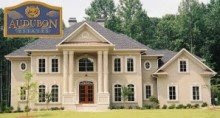
An HOA provides people with shared neighborhood values an opportunity to enforce regulations, consistent with overriding statutory constraints, to achieve a community representative of such values. In doing so, an HOA inherently restricts the freedoms that would otherwise exist for its members based on municipal codes. For instance, a degree of conformity is often required in exterior appearance of single family homes and there are often time limits and/or restrictions to activities generating noise. There are pre-existing rules in the form of CC&Rs and bylaws that a buyer has a right and an obligation to view before entering such a community, that also prescribe methods for modification of these regulations. These bylaws are largely limited in various degrees by state laws, with some overriding federal judicial or statutory limits. For instance, based on a Supreme Court decision, no HOA can prohibit signs advocating political positions, however, such signs may be limited to private property display and may not be displayed in common areas. On the other hand, HOAs do have authority to prohibit the display of commercial signs, both on community property, private property and often on private vehicles. In every association, board members and officers are chosen by election from its property owner-members, with the ability in some states for the membership to remove board members even during term.
Many homeowners' associations include management of a community's recreational amenities, maintained for exclusive use of its members. This can allow an individual homeowner access to a maintained pool, clubhouse, gym, tennis court or walking trail that they may not be able to otherwise afford or desire to maintain on their own. Each member of a homeowners' association pays assessments that are used to cover the expenses of the community at large. Some examples are landscaping for the common areas, maintenance and upkeep of community amenities, insurance for commonly-owned structures and areas, mailing costs for newsletters and other correspondence, employment of a management company or on-site manager, security personnel and gate maintenance, and any other item delineated in the governing documents or agreed to by the Board of Directors.
While many criticisms of HOAs are made, everyone living under the jurisdiction of such a governing body has made a decision to do so, and many are happy to have the governing body in place to enforce shared values and community standards. A survey by Zogby International showed that for every one owner-member who rated the overall experience of living in a community association as negative, seven rated the experience as positive.
Coutesy of http://en.wikipedia.org/wiki/Homeowners%27_association
Many homeowners' associations include management of a community's recreational amenities, maintained for exclusive use of its members. This can allow an individual homeowner access to a maintained pool, clubhouse, gym, tennis court or walking trail that they may not be able to otherwise afford or desire to maintain on their own. Each member of a homeowners' association pays assessments that are used to cover the expenses of the community at large. Some examples are landscaping for the common areas, maintenance and upkeep of community amenities, insurance for commonly-owned structures and areas, mailing costs for newsletters and other correspondence, employment of a management company or on-site manager, security personnel and gate maintenance, and any other item delineated in the governing documents or agreed to by the Board of Directors.
While many criticisms of HOAs are made, everyone living under the jurisdiction of such a governing body has made a decision to do so, and many are happy to have the governing body in place to enforce shared values and community standards. A survey by Zogby International showed that for every one owner-member who rated the overall experience of living in a community association as negative, seven rated the experience as positive.
Coutesy of http://en.wikipedia.org/wiki/Homeowners%27_association













No comments:
Post a Comment